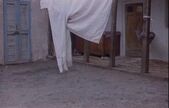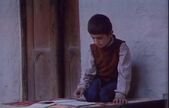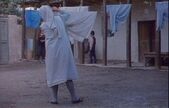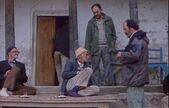One of Abbas's most well-known films is also an important work for the world to know about Iranian films. This film is the simplest and most direct among Abbas's works. There is no later experiment on the film's narrative and images. It just records the story of a little boy who traveled all the way to return the wrong classmate's workbook with a simple lens.
In an elementary school in the mountains of Iran, the strict male teacher found Muhande repeatedly failing to complete his homework when he checked his homework, so he severely criticized him and used him as a negative teaching material in front of the whole class. If Muhammad commits another offense, he will be fired immediately. The teacher emphasizes to the students that this is to help them establish good rules. After school, Muhand's deskmate, Amud, came home and found that he had brought Muhand's workbook home. The workbooks of the two were exactly the same. He was afraid that Mohande would be fired, so he decided to return the workbook to Mohande immediately. But his mother thought he was just looking for a reason to hang out, and that Muhand's family lived far away. Mother did not let Ahmud go out, and asked him to do his homework quickly. But in the face of the anxious Ahmed's repeated explanations and pleas, his mother finally agreed with him to return the workbook. Ahmed ran out the door immediately, he ran over a hillside with a Z-shaped dirt road (this hillside appears in the subsequent earthquake chapters) and then he ran through a forest (also in the earthquake chapter) He came He went to Muhand's village, but because he didn't know the exact address, he could only ask people everywhere. He heard that Muhand had followed his father to his village, so Amud went back to his village and saw A window-making craftsman who appears to be Muhand's father. He asked the craftsman in a low voice if it was Muhand's father, but the craftsman didn't hear him get on his horse and prepare to go home. Ahmed chased the craftsman on horseback to Muhand's village, only to find that the craftsman was not Muhand's father.
He kept asking the villagers and finally found Muhand's home accompanied by an old man. But it was getting late, and he saw that the house was dark outside Muhand's house, and he should have fallen asleep. He didn't dare knock on the door for fear of disturbing others, so he returned to his home with his homework book. Immediately after he got home, he fell on the ground and started to do his homework. He didn't even bother to eat, and the wind was howling outside. Ahmed was late the next day, and the teacher was already in the classroom when he arrived. Ahmed immediately ran to his seat and took out the workbook he had written for Muhand and his own workbook. He even gave the wrong workbook when the teacher checked. After the teacher checked, Amud returned the workbook to Muhand, with a flower in the workbook...
The boy in the film is an important source of the film's strength. He is anxious, sad and simple, and his persistent eyes are very catchy. He has been running back and forth, tirelessly, just because he doesn't want to see his tablemate fired. The repetition of that Z-shaped hillside and woods is so symbolic, a testament to the boy's will. Seeing the boy's eyes when he begged his mother to let him return the homework book, this kind of touching is huge. Abbas never added any personal emotion, he just told a simple story, a persistent story, not sensational, but full of stamina.
View more about Where Is the Friend's House? reviews








